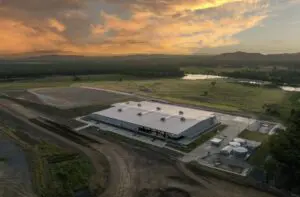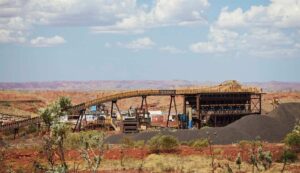Australian-based venture LAVO, a university spin-off that has developed an innovative hydrogen-based energy storage system for homes and businesses, is one step closer to commercialisation, announcing that the technology is now ‘commercially-ready’ and will soon start taking orders for the first systems.
The LAVO system has been developed by researchers at the University of New South Wales, and uses compressed hydrogen as the main medium for energy storage. The company says that by using hydrogen, the LAVO device can offer three times the amount of energy storage compared to other devices of similar size, and offers double the operational life.
The LAVO system utilises a metal hydride material, which absorbs hydrogen that provides a safe and stable medium for storing hydrogen over the long-term.
LAVO said the system would be available for advanced purchase in November, with the first systems ready for installation in June 2021.
In announcing that the company will soon begin taking orders for the hydrogen energy storage system, LAVO says that it will target four core markets, including residential and commercial energy storage, off-grid and backup power supplies and telecommunication towers. LAVO estimates that these markets represent a $2 billion opportunity in for the company in Australia.
The LAVO system will effectively seek to compete with battery storage technologies, which have taken a foothold in both the small and large scale storage markets in Australia.
The LAVO technology is a spin-off of the Hydrogen Energy Research Centre, which had been co-founded by UNSW and investment group Providence Asset Group, which has served as a financial backer of LAVO.
“We are very excited to be building the next generation of energy storage in Australia alongside the leading researchers at UNSW and our world-class manufacturing partners. LAVO’s technology is truly a game-changer for the energy storage market, and we believe it will have a real, positive impact on the way people power their lives,” CEO and Executive Director of LAVO, Alan Yu said.
“As a global community we are experiencing the undeniable impact that climate change has had on our environment and we are proud to be a part of the global shift toward a cleaner, greener society. With the fantastic support of Australian state and federal governments, as well as many others around the world, we believe that hydrogen storage technology has a very bright future with a wide variety of everyday applications.”
“With today’s launch, we have reached an exciting milestone for our Company and for our technology, but our work is far from done. As we advance the LAVO System through the final approval stages ahead of commercialisation, we continue to research and explore other ways that we can enable consumers to live greener through a broad range of LAVO products in the future,” Yu added.
As reported by RenewEconomy in July, LAVO engaged engineering consultancy GHD to support the development of the technology.
Lead researcher in hydrogen technologies at UNSW, professor Kondo-Francois Aguey-Zinsou, who serves as an executive director of LAVO, said that he expected the hydrogen based storage system to be a game-changer.
“After more than two decades researching hydrogen technology, I am thrilled to work alongside Alan and the rest of the LAVO team to bring the LAVO System to market. While metal hydride is a proven and widely used technology, the enhanced hydride technology that we have developed is versatile and scalable and, importantly, safe and reliable for consumer use,” professor Aguey-Zinsou said.
LAVO is looking to tap into a projected global market for hydrogen energy, that is expected to grow to more than US$2.5 trillion by 2050. The company expects that as many as 1,400 jobs could be created by the company by 2025, in research, manufacturing, installation and maintenance.











